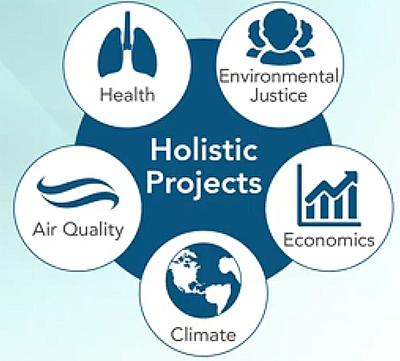Every year, the California Air Resources board gives out grants to researchers who gather data that help inform policy and regulations made by the agency. The research questions to be addressed are formulated by CARB staff with input from the public.
Now through June 15, CARB is collecting questions, comments, and concerns via a short survey. These can range from detailed proposals from academic or community researchers to general comments or concerns about air quality, sustainable transportation and communities, or climate change. These can be open-ended questions; they can be submitted by members of the public who want their local community concerns to be addressed by research.
The survey, available at the CARB website, asks commenters to "provide a brief description of your concern, how it impacts you, your family and/or your community, and how you think CARB could address it through scientific research." The research program is not limited to academics; community-driven research could answer some of the questions, and the survey asks for information about existing community efforts that could benefit from working with CARB.
Answers and feedback from the survey will be compiled, summarized, and shared through the Air Resources Board's planning process.
About twenty to thirty of the ideas will be chosen, depending on how well they align with CARB's mission, how timely they are, and whether the research can help the state meet anticipated challenges. These will be presented to the public for feedback later this year, at which point the top eight to ten will be prioritized, and research proposals will be solicited.
A key question asked on the survey:
"Was this survey a convenient way to submit a research concept or comment? Is there a better way for us to collect research concepts and comments in the future?"
This hints at how difficult it can be to gather feedback from the public on what can seem wonky or very academic subjects. However, it's important to remember that the people on the ground, living in communities and dealing with local conditions, are the ones who know best what needs addressing.
What are those bad smells coming from a nearby factory? How does that oil well down the street affect your community's health? How can your neighbors best reduce exposure to extreme heat or emissions coming from that nearby freeway? What's the best way to encourage people to use ebikes? Every community will have its own concerns, and the Air Resources Board can't know what those are without the help of the public.
This video explains the survey process in some detail, including what CARB will do with the comments they receive. There is currently a research budget of about $4 million annually, which can fund about eight to ten projects, depending on their complexity.






